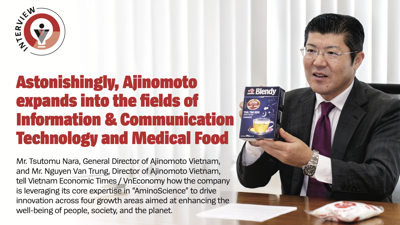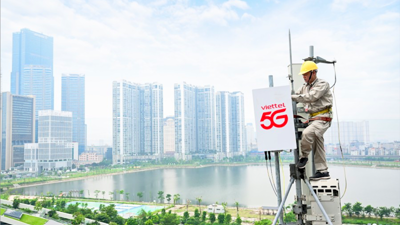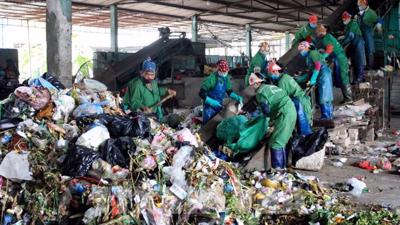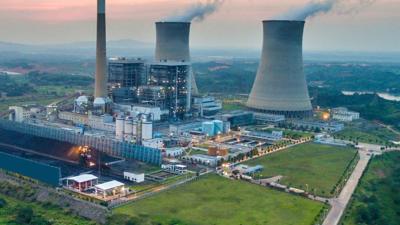Green & digital promise
Mr. Tim Evans, CEO of HSBC Vietnam, tells VnEconomy / VET about the driving forces behind Vietnam’s economic growth in the new era.

How would you evaluate Vietnam’s economic performance in 2024?
Vietnam’s economy had its ups and downs in 2024, but as it ended with GDP growth of 7.09 per cent it can be said there were more ups than downs.
It has posted significant achievements over recent years in positioning itself as an FDI destination. Despite the global challenges, Vietnam has still been able to receive significant FDI volumes, recording strong growth in investments for three consecutive years, both in registered and disbursed capital. Disbursed FDI totaled $25.35 billion, an increase of 9.4 per cent compared to 2023 and marking the third consecutive year disbursement has exceeded $20 billion. This has helped boost not only electronics exports but also footwear, garments, semiconductors, and machinery components. This represents a significant success for Vietnam in 2024.
Notably, its strengths lie in its ability to overcome obstacles and challenges. Vietnam was hit by Typhoon Yagi last September, which impacted the economy in the north. It also faced continued inflationary pressures worldwide, as well as the effects of geopolitical tensions in the Middle East and Europe.
Despite the challenges, Vietnam continues to grow very well, especially in terms of FDI, exports, and tourism, with some 18 million foreign tourists visiting in 2024. There is a small challenge, of retail sales not yet returning to pre-Covid-19 growth levels. However, I think it is only a matter of time before there is a recovery, when people have more confidence in Vietnam’s economic story.
What do you forecast for Vietnam’s economic performance this year?
Vietnam will continue to be a standout performer in ASEAN and Asia, with strong trade recovery. It will also continue to manage the inflation challenges. We expect inflation of around 3 per cent and GDP growth of 6.5 per cent for 2025.
We cannot be certain as yet about the impact and extent of the new Trump administration’s policies. During President Donald Trump’s first term, Vietnam benefited. While it is too early to be certain of any outcome, I am confident that the Vietnamese Government and the Vietnamese people have always shown the ability to navigate through times of uncertainty and do so very effectively.
What are the new driving forces for Vietnam’s economic growth in the time ahead?
Apart from exports, investment and consumption, other areas that can help boost Vietnam’s economy include the transition to a net-zero economy. The figures show that Vietnam will need to spend about $400 billion between now and 2040 to achieve its net-zero targets, which will stimulate the economy.
In addition, there will also be benefits for companies operating in Vietnam. Many international companies operating in the country seek various types of finance to support their efforts to move their operations to net-zero. HSBC’s aim is to support Vietnam in achieving its strategic goals, and we will continue to work with the government and partnering with Vietnamese businesses and international companies in the transition to net-zero.
Another new driver is the digital economy. Vietnam has a very young, tech-savvy population. The country also has a very high internet penetration rate, and the government’s strategy on the digital transformation will have positive effects on the economy. I think any new driving forces that come into the economy will have significant opportunities in the years to come.
In that context, what are Vietnam’s advantages compared to other countries in the region?
Vietnam has deeply integrated into global supply chains over the last 50 years. It is contributing significantly to the world, and we are increasingly seeing its presence. In terms of comparative advantage, if countries focus on what they do best, products will be cheaper and of better quality, and consumers around the world will benefit from that. Therefore, I think Vietnam has a big role to play in bringing benefits, not only to Vietnam but also to the international community.
Vietnam has a competitive cost advantage compared to many other countries. It has a very open policy when it comes to global trade. With free trade agreements now in place, Vietnam has been able to demonstrate that it can manage inflationary pressures. It has an extremely hard-working workforce. If you look at the PISA scores, Vietnam is in second place, behind only Singapore in terms of education. Putting all of that together, I think Vietnam is a bright spot and ready to move into the next phase of economic development.
It should focus on its strengths, which are FDI, exports, and tourism, which are growing. We may also witness growth in investment in the green transformation as well as the benefits from becoming a more digitally-driven economy.







![[Interactive]: Economic overview - April 2025](https://media.vneconomy.vn/400x225/images/upload/2025/05/06/5a245778-67b1-4874-a8dc-21f8cfed62a6.png)